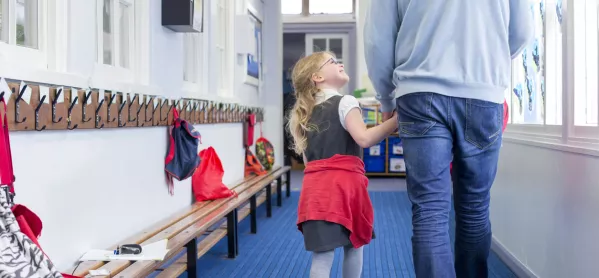- Home
- ‘Why I’m letting parents keep their children at home’
‘Why I’m letting parents keep their children at home’

I haven’t been given permission to do this. I didn’t ask anyone. But I’ve told parents whose children aren’t experiencing any coronavirus symptoms that if they want to keep them at home, I will authorise that absence.
I feel like this is my moral duty. We’ve been told categorically that social distancing is essential. Schools are basically just mass gatherings, aren’t they? It doesn’t make sense to have lots of children in school together, touching each other all the time.
It feels like a lot of the measures that have been suggested in the guidance around social distancing apply to absolutely everyone - bars, clubs, cinemas and so on - but not to schools and not to teaching professionals. So that’s why I’ve done what I’ve done.
Coronavirus measures in schools
In our school of 354 pupils, on day two of our new policy, there are 110 children off. Some of them are off because they have symptoms, or members of their family do. And some are off because I’ve said they can be.
Parents wanted clarity, and they didn’t want to contribute to the spread of the virus. So this solution works for everyone. I’ve had no kickback from parents, and the local authority hasn’t told me off.
We’re completely prepared to do this until summer. This is what we all have to do. It’s the only way we can keep frontline workers in hospitals, and allow people who can’t afford to take time off work to pay their bills.
There are 20 children roughly in each class now, instead of 30. The atmosphere in school is really positive and lovely: everyone is pulling together. You hear children in the classrooms, laughing with their teachers.
Sending staff home
With significantly fewer children, it’s now workable to reduce staff. I have 12 members of staff who are now self-isolating. And we have four who are off because they have a compromised immune system.
I’ve told them to go home, and not to return until this whole thing is finished. They’re all on full pay.
Although I don’t have anyone in this situation in my school, I think that, if a member of staff has a vulnerable family member - including a pregnant partner - at home, that person should not have to come to school.
But we need to stay open. If we end up with only five children in each class, that’s great: we can send lots of members of staff home.
If it came down to a situation where there was only a really small number of kids in school, I’d go in. And then I’d say to everyone else: it’s your choice, really.
There is a danger that, if we’re staying open for the children of frontline health professionals, those parents will have come into contact with coronavirus. That’s a major risk for teachers, and it’s not great. But it’s what has to happen, in the absence of any other solution.
Protection for teachers
Normal safeguarding has been turned on its head. Everything is topsy-turvy: it’s the teachers who are potentially at risk from the children, rather than the other way around.
I hope that, if this situation continues, the government will provide all members of school staff with personal protection equipment - masks, gloves and so on - so that people are protected.
All of the pupil-premium money that would have been spent on free school meals, we will donate to a local organisation that will provide food for those who need it. It’s about really doing things differently, and thinking about how we can help each other.
Of course, there are Sats coming up. Any other time, I would be absolutely hammering people about the importance of attending school. But people’s lives are at stake now. And people’s lives are more important than anything else.
We will take a hit on Sats - that’s inevitable. (If, of course, we’re even in school at that time.) But it is what it is. This is more important.
What we’re doing feels like a really, really positive step. It feels like it could work. If we could all just be more relaxed about the whole attendance thing, we could crack on with the business of saving lives.
Mike Fairclough is headteacher of West Rise Junior School in East Sussex
Keep reading for just £1 per month
You've reached your limit of free articles this month. Subscribe for £1 per month for three months and get:
- Unlimited access to all Tes magazine content
- Exclusive subscriber-only stories
- Award-winning email newsletters



